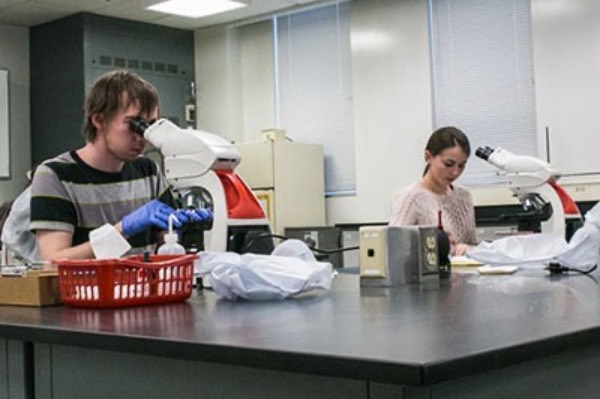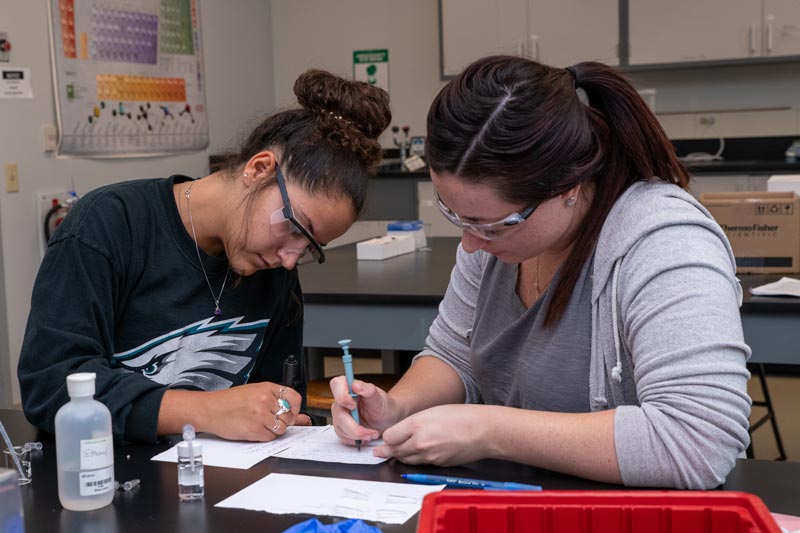B.S. Forensic and Toxicological Chemistry
Are critical thinking and problem-solving your strengths? Do you have an interest in applied analytical chemistry and learning a broad spectrum of analytical chemistry skills? If you have been thinking of an undergraduate program that gives you hands-on skills that make you laboratory-ready, you might be looking for a program that will prepare you for a career in the forensic science laboratory.
Mission Statement
The mission of the WCU Forensic and Toxicological Chemistry program, is to cultivate professionals who have acquired the knowledge and skills required for thriving careers in forensic science laboratories, toxicology labs, and a variety of analytical testing laboratories including research and clinical laboratories.
Program Goals and Outcomes
- Graduates will have a strong foundation in the natural sciences.
- Graduates will have a fundamental understanding of the principles of forensic sciences, toxicology, analytical chemistry, biochemistry, and statistics relevant to the professional practice of forensic chemistry and toxicology.
- Graduates will have gained extensive laboratory experience through their coursework and internships.
- Graduates will have demonstrated competence in scientific communication in both written and oral form.
Students take a series of coursework that give them a sound combination of fundamental chemical knowledge, forensic science concepts, and analytical chemical skills. They learn the chemistry of physical evidence, the tools needed to analyze them, the art of communicating scientific results well, and professional laboratory practices. Our curriculum and learning environment are designed to graduate chemists who are well-prepared for entry-level positions in laboratories, graduate school, or other career paths they might find themselves on.
We are FEPAC accredited! Our well-rounded curriculum meets the curricular standards set by FEPAC. We routinely evaluate our curriculum and program practices to ensure that students are well-informed about current issues in forensic science practice.
Forensic science professionals are expected to possess personal integrity in addition to the educational requirements. Thorough background checks are required in many forensic science positions. Potential and current students desiring to become forensic science professionals should be mindful that all personal associations, social media presence, medical and drug history, and financial history might be verified. Students are urged to be honest and transparent in all applications, resumes, and communications.


